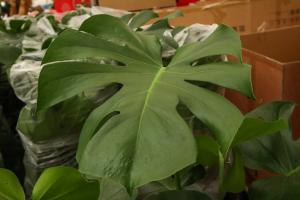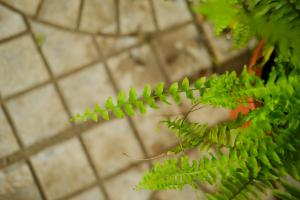Does the Salt from a Water Softener Hurt Plants?
Water softeners are a common appliance found in many homes. They're designed to remove minerals like calcium and magnesium from hard water, making it easier on appliances and plumbing. However, the process of water softening often involves the use of salt, which raises concerns about the impact it may have on plants.
Understanding Water Softeners and Salt
Water softeners work by passing hard water through a tank filled with resin beads. These beads have a negative charge, which attracts positively charged minerals like calcium and magnesium. As these minerals stick to the beads, they are removed from the water. However, over time, the beads become saturated with these minerals and need to be cleaned.
This is where salt comes in. Most water softeners use salt to regenerate the resin beads. During this process, highly concentrated saltwater is flushed through the tank, effectively releasing the minerals from the beads and washing them down the drain.
The Impact of Salt on Plants
While salt is a natural mineral and essential for plant growth, excessive amounts can be harmful. When the soil becomes too salty, it can cause a phenomenon known as osmotic stress. This occurs when the concentration of salt outside the plant's root is higher than inside the root, which affects the plant's ability to take in water.
If plants are exposed to high levels of salt for an extended period, it can cause root damage and dehydration, leading to stunted growth, wilting, and eventually plant death. Moreover, salt buildup in the soil can contaminate groundwater, which is a crucial natural resource for humans and wildlife.
How to Minimize the Damage to Plants
Fortunately, there are ways to minimize the damage caused by salt from water softeners. One solution is to divert the water from the softener away from your yard and plants. This can be achieved by redirecting the water to a designated drainage area or finding alternative ways of using the softened water, like indoor cleaning or laundry purposes.
Another solution is to switch to a salt-free water softener. These alternatives use methods like ion exchange or electromagnetic waves to remove minerals from water, eliminating the need for salt. While they may have a higher upfront cost, they're more eco-friendly and safer for plants and humans alike.
In Conclusion
While water softeners are designed to make life easier, they can pose a risk to plants if they're not managed correctly. Excessive salt from water softeners can lead to soil contamination, plant stress, and ultimately death. However, with proper management and some simple solutions, you can minimize the impact of salt from water softeners on your yard and plants.

 how many times do yo...
how many times do yo... how many planted tre...
how many planted tre... how many pine trees ...
how many pine trees ... how many pecan trees...
how many pecan trees... how many plants comp...
how many plants comp... how many plants can ...
how many plants can ... how many plants and ...
how many plants and ... how many pepper plan...
how many pepper plan...
































